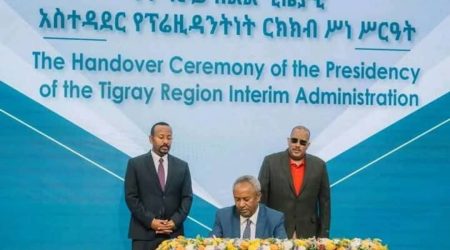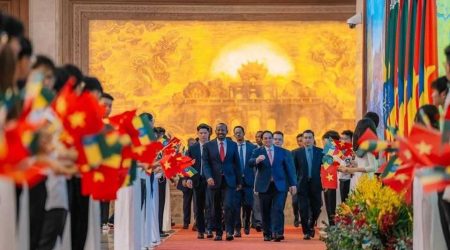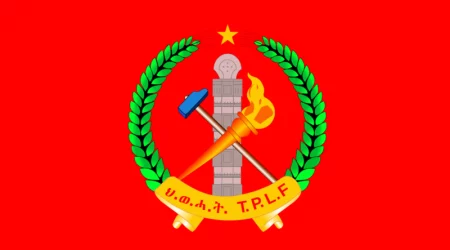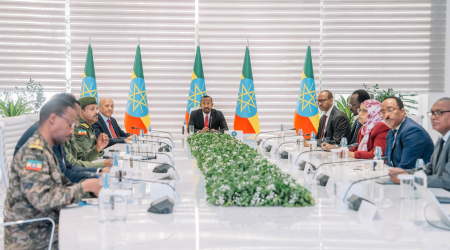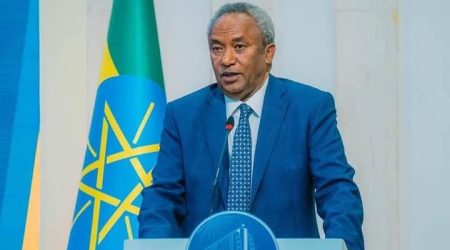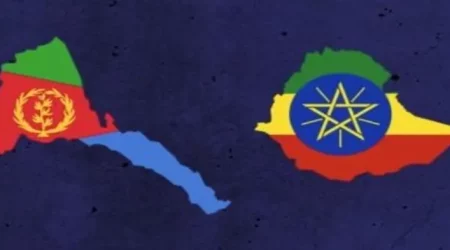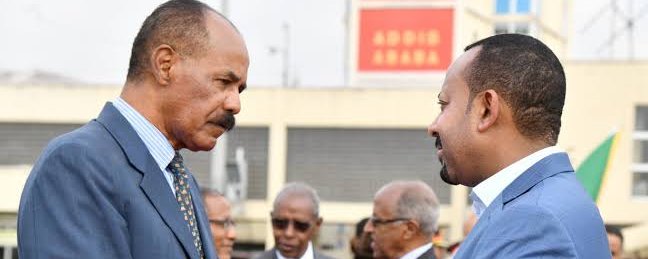
22
Apr
Strategic Restraint and Geopolitical Equilibrium: Ethiopia’s Response to Eritrean Accusations
Recent discourse portraying Ethiopia as poised for an imminent war with Eritrea lacks the nuance required to understand the intricacies of the Horn of Africa’s geopolitics. This prevailing narrative frequently omits Ethiopia’s complex domestic priorities, its enduring commitment to diplomatic engagement, and the broader regional dynamics that continue to shape its strategic calculus. While historical grievances and unresolved territorial issues remain salient, the characterization of Ethiopia as a nation on the brink of irredentist warfare is a distortion of its actual policy orientation.
Ethiopia’s relationship with Eritrea is undeniably fraught with legacies of conflict, particularly surrounding contested areas such as Assab and Zala Anbesa. However, Ethiopia has consistently chosen the path of restraint and dialogue, even in the face of persistent provocations and territorial infringements. The presence of Ethiopian forces in border zones such as Bure must be interpreted within the broader context of preventing renewed hostilities between Eritrea and actors like the Tigray People’s Liberation Front, rather than as a signal of impending interstate conflict.
In contrast to its more assertive security posture in Somalia, where Ethiopian forces have engaged in counterterrorism operations and state-building initiatives, Ethiopia’s approach to Eritrea remains notably restrained. This reflects a strategic awareness that renewed war between the two countries would not only devastate bilateral relations, but also risk destabilizing the entire Horn of Africa. The Ethiopian government, acutely aware of these risks, has thus anchored its Eritrea policy in diplomacy and regional cooperation.
Nevertheless, Eritrea has recently intensified its accusations that Ethiopia is preparing for an irredentist war, ostensibly to reclaim territories lost in prior conflicts. Such allegations, however, appear to be more reflective of Asmara’s internal political anxieties than of any verifiable military doctrine or policy shift in Addis Ababa. Ethiopia’s recent investments in defense modernization, including advancements in drone technology and domestic weapons manufacturing, have been interpreted by some as preparation for aggression. Yet this interpretation fails to account for Ethiopia’s broader national security strategy, which is designed to address internal insurgencies, cross-border instability, and the need for self-reliant defense capabilities.
Modernizing national defense structures is neither uncommon nor inherently antagonistic. Ethiopia’s pursuit of defense autonomy aligns with global trends and reflects the practical necessity of securing a nation facing a multitude of internal and external threats. These reforms are not Eritrea-specific, nor do they constitute evidence of a revisionist agenda. Rather, they are embedded within a larger project of national renewal and institutional resilience.
That said, Eritrea’s continued occupation of Ethiopian territory, coupled with allegations of demographic manipulation, particularly in areas such as Zala Anbesa, remains a legitimate source of tension. Reports suggesting the displacement of indigenous Tigrayan populations raise serious humanitarian and geopolitical concerns. Yet, even in the face of these provocations, Ethiopia has chosen not to escalate militarily, underscoring its commitment to resolving disputes through diplomatic channels.
The international community, in turn, must resist alarmist interpretations and acknowledge Ethiopia’s deliberate strategy of de-escalation. By framing Ethiopia’s internal reforms as precursors to war, analysts risk misrepresenting the very nature of its foreign policy objectives. Instead, global and regional actors should support Ethiopia’s efforts to stabilize its borders, maintain peace, and foster structured dialogue with Eritrea.
In conclusion, Ethiopia’s conduct vis-à-vis Eritrea does not support the thesis of imminent conflict or expansionist intent. On the contrary, Ethiopia has acted with restraint, pursued diplomatic alternatives, and implemented defense reforms aimed at institutional modernization rather than territorial aggression. The burden of regional stability lies not only with Ethiopia’s continued diplomatic posture, but also with Eritrea’s willingness to engage constructively and abandon inflammatory rhetoric. Diplomacy, not war, remains the most viable path toward lasting peace between these two intertwined nations.
By Jalene Tesfaye,Deputy Director,Horn Review


